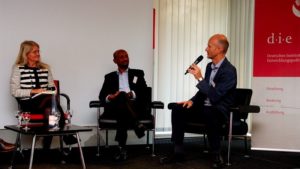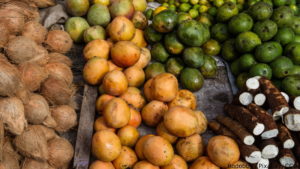
In the context of the BMZ-funded research project “Reducing causes of forced displacement and managing migration”, on 30 and 31 October, the third international conference on displacement and migration “Linking policies and people: New insights on migration and development” took place at DIE. At the conference, representatives from research and political practice discussed the relationship between migration and development, causes of displacement and migration, migration governance at global, regional and (sub-)national levels and strategies of the concerned population.
The participants reflected on the UN Global Compacts for Migration and on Refugees, agreed upon in December 2018. There was widespread consensus on the relevance of particularly the Migration Compact as the hitherto most encompassing international regulatory framework on migration. However, there was also agreement on the challenges to translate it downwards, in view of global power inequalities and conflicts of interests. Future research should thus centre on the policy dynamics involved in promoting a “safe, orderly and regular migration”, for example between Africa and Europe.



